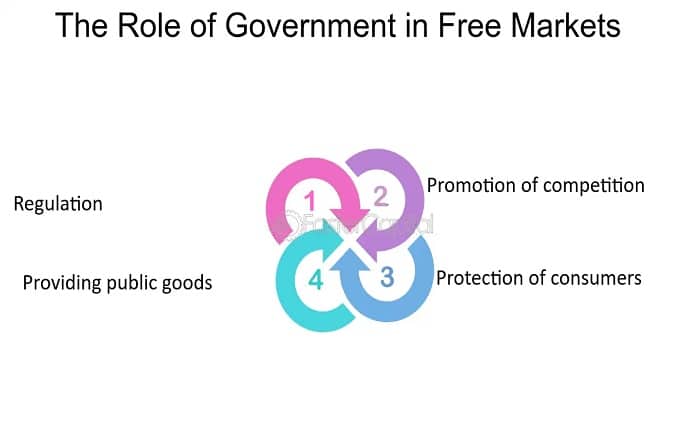The Role of Government, Free Markets, and the Misconceptions About Monopolies and Competition

The main debate in U.S. domestic policy concerns the government’s economic role. Those who want less government are losing this debate. Voters want more government action.
Some of us on the losing side often blame academics. They push socialist ideas to weaken our free enterprise system. It’s a bet on the wrong explanation. It assumes that, if quiet, American principles would win over the critics.
The Dangers of Misguided Criticism and Calls for State Intervention
This explanation is as inaccurate as it is dangerous. It is dangerous. It could restrict freedom of speech and press, which is un-American. Dangerously, we can become lazy in our efforts. We are influenced by it. We must prepare and present our facts as powerfully and convincingly as possible. This is untrue. Of the five hundred who support more state intervention, none are socialists or opponents of free enterprise. But most of them favor free markets. They believe these proposals aim to strengthen, not weaken, them. They claim the market can survive only if the state fixes its weak, flawed aspects.
For example, some claim that the free market is unstable. Its ups and downs could destroy the economy if the state does not intervene. This is a serious charge. But I find flaws in the analysis and the calls for state intervention.
Instead, discussing another severe accusation against the free market is better. Its friends make it.
The Myth of Monopolies and the Role of State Intervention
The accusation is that true economic freedom is unattainable. It is, despite its desirability. In an unrestricted market, individuals are not free. They are subject to various monopolies. These can be of different types and degrees. This accusation is repeated in the preambles of almost all interventionist legislation. It is stated that, due to the employer’s monopoly, workers need protection. Farmers must be protected from monopolies in both markets. Certain businesses must be protected from other types of firms. The government must set prices because monopolistic firms work in the field.
If private monopolies are so common, it supports the need for the state. I will argue that the unrestricted market seeks to be competitive. Only the state’s harsh measures can stop a competitive market.
Monopolies have short lives and are inefficient, except when supported by the state. To paraphrase, the U.S. government has promoted monopolies more than competition.
Challenges to Competition: Human Nature, Technology, and Market Awareness
I agree that a mindset is inherent in a man who tries to work against the competition. While we may favor competition as a general principle, we prefer to avoid confronting it in our arena. Competition is good in theory. But, it’s harmful in our private lives and jobs. This is especially true for competition from abroad or untrained people.
Another reason to doubt a free economy is tech’s effect on firm size. The tech revolution has made all industries seek efficiency. To be efficient, firms must have vast, complex assets. They need large buildings, equipment, and distribution networks. Scaling up an efficient firm is another challenge. It is key to keeping a competitive economy fresh.
The Temptation of Release
Today’s economic world is complex and confusing, so these accusations deserve serious attention. Indeed, collusive arrangements, not competition, define the face of an unregulated market economy. It is pointless to argue that the urge for secret deals has a big role in a person’s life. Yet, it is true that the same forces that lead to the formation of cartel agreements also aim to destroy them.
The main factor in all this is the desire to make money. For example, let’s assume a few farmers, by a narrow vote, agreed not to sell livestock to the local market.




